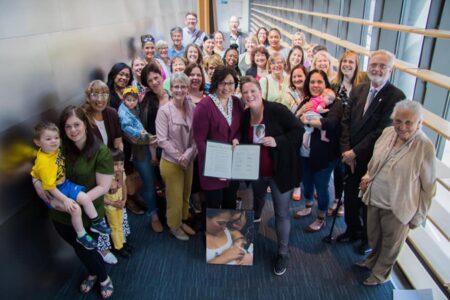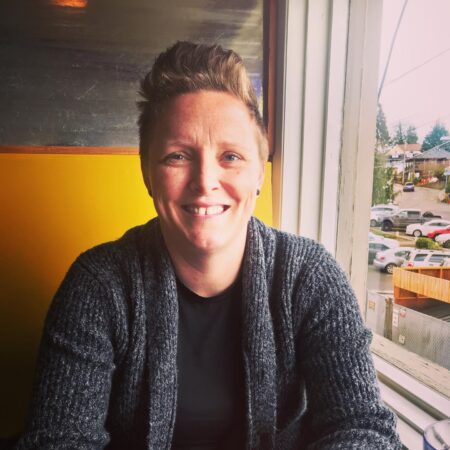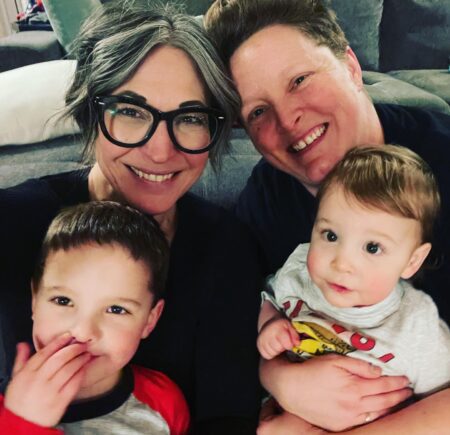What is your role at Seattle Human Services?
As a Senior Grants & Contracts Specialist in the Aging and Disability Services (ADS) division, I hold many Medicaid contracts and several non-Medicaid contracts.
What made you want to work in human services?
I love humans and I am intensely curious about how and why we operate in the ways we do. I have a bachelor’s degree in psychology and my first case management job was mental health case management in Chattanooga, TN. My dream was to work in grief counseling and/or with hospice but twists and turns in my life led me in a different direction.
I moved to Seattle in 2010; I was an unpaid caregiver for a family member for one year, and then I worked at Compass Housing Alliance as a case manager and program manager. In 2015, I traded in my full-time job with benefits for a three-month temporary position with the City of Seattle (in HSD ADS). I have been here ever since—hired in a permanent position, I worked from 2015 to 2022 in long-term care case management and, in 2022, moved to my current position in the grants and contracts unit.
How has your job changed in recent years?
The pandemic changed everything about my work. In my final stretch as a case manager in 2022, our clients—the most vulnerable community members—seemed more isolated, anxious, and in need of support than I had ever seen in all my years of case management. The toll of the pandemic on my clients was especially challenging for me to hold while also keeping space available for myself and my family.
As a grants and contracts specialist, most of the technical aspects of the work are new to me; however, the heart and purpose of the work is not new. Now, working with agencies directly, I see their grit in trying to squeeze every ounce out of every dollar to serve their communities. And it makes me want to advocate for every dollar for them in all the spaces I can.
What do you love about your job?
I love working with people, especially those who are disadvantaged, hurting, and left behind by our systems and policies. I love developing real relationships with people compiled of many different moments … moments where I hear about their kids and grandkids and moments where I try to understand how my role might intersect with theirs. This approach applies to working directly with clients as well as with agencies and their staff. I believe that if I listen to people and believe people, then everything else will take care of itself. I focus on building strong relationships first, because that focus makes all other things possible, especially the most difficult challenges that relationships face.
How do you contribute to HSD’s overarching goals related to racial equity?
The culture shift I have seen over the last two years in HSD and ADS is creating an internal shift in me, too. Leading with race and embracing relational culture is more tangible to me now because I see regular examples of my colleagues moving talk into action each day. It’s a lifelong journey of learning to which I will never “arrive.” But I do believe, if I keep showing up, having difficult conversations, strengthening my muscle to sit in discomfort and pain, and practice using my voice, then the equity needle will push in the right direction.

What motivates you or keeps you going?
I feel tremendous hope. And while I certainly have my share of fears about the world we are living in and what that means for my beautiful children, I feel hopeful that all the hard work in my own life will give them a foundation of tools for what they will face in their lives.
What’s one piece of advice for HSD newcomers or recent graduates in your field?
You don’t know what you don’t know—and that is okay. It is okay not to know, no matter what society wants you to think. A beginner’s mind, being new, coming fresh out of school, and having a perspective open to all possibilities is a breath of fresh air in any setting. Harness it, hone it, and don’t be afraid of it.

